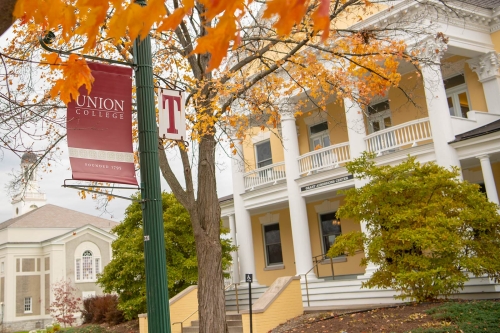Private student loans are non-government loans from lenders such as banks, credit unions, and state agencies. Either the parent or the student can be the primary borrower, though with the latter, a co-signer is usually required. Before taking an alternative loan, we encourage families to exhaust all federal student loan options first. You may find this summary of the differences between federal and private student loans helpful.
If you choose to pursue a private loan, be sure to compare the costs associated with various loans before completing an application. Interest rates, fees, repayment periods, and other benefits can vary significantly among loans. While many private educational loans are available with no fees and interest rates less than 10%, other programs have fees over 5% and interest rates over 14%. These high rates can result in several thousands of dollars in additional costs. Union does not recommend any specific private lender. If you have any questions, please contact the Financial Aid Office.
To help you compare the various private loans, consider the following questions:
Loan terms
- What is the interest rate? Is it fixed or variable? and how is it determined?
- How often is the interest rate adjusted?
- How much are origination fees and how are they charged?
- Will I be required to pay the interest while enrolled in school?
- When does the interest rate start to accrue and will it be capitalized?
Repayment
- When does repayment start? Is there a grace period before repayment begins?
- What is the monthly minimum payment?
- What is the maximum repayment period?
- Am I allowed to pay on the interest while I am in school?
- Are there any loan repayment benefits or reductions? If so, will they remain if a future payment is late?
- Can I defer repayment of the loan if I go to graduate school?
- Do you apply any penalties or charges for prepayments or early payoff?
